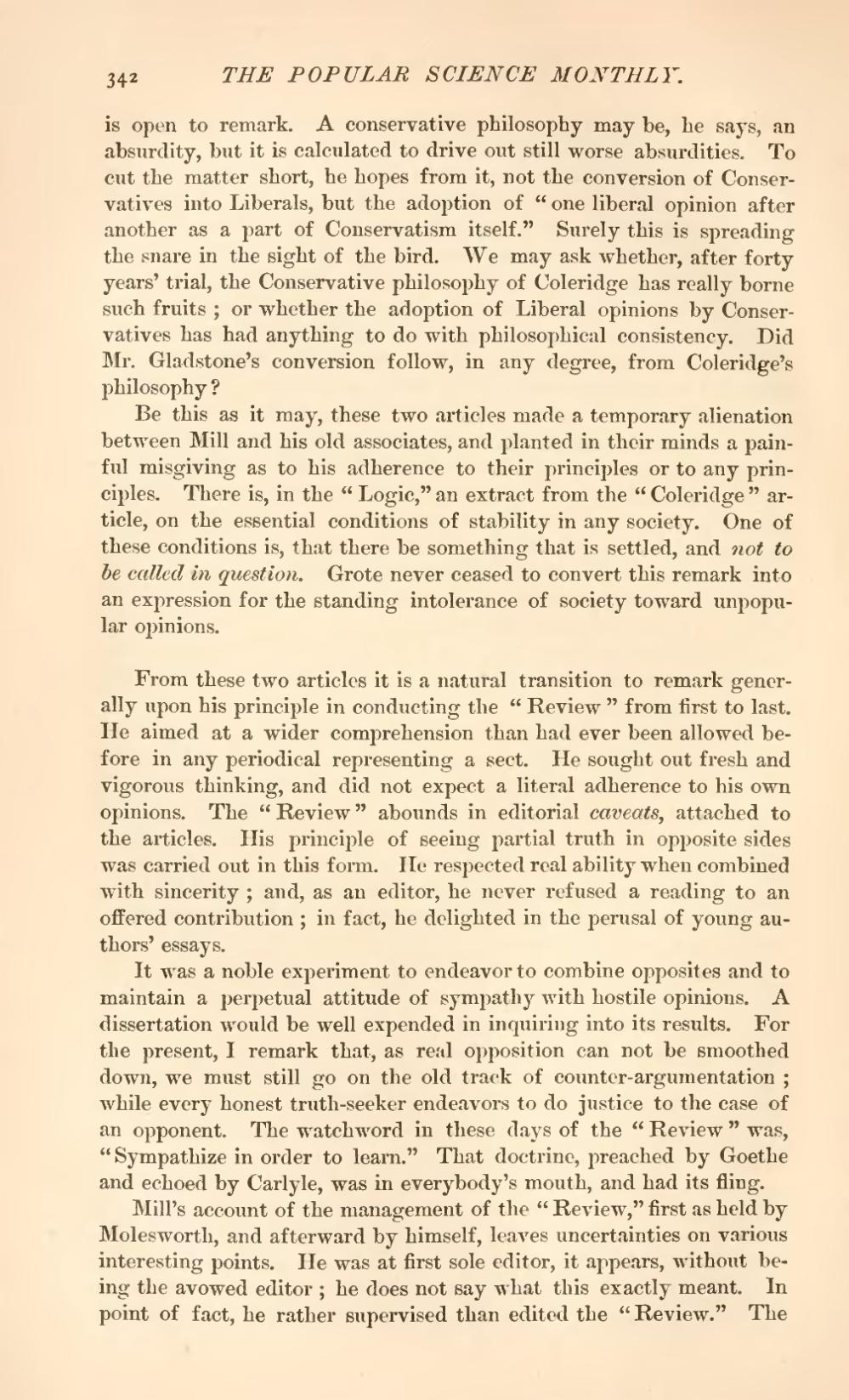is open to remark. A conservative philosophy may be, he says, an absurdity, but it is calculated to drive out still worse absurdities. To cut the matter short, he hopes from it, not the conversion of Conservatives into Liberals, but the adoption of "one liberal opinion after another as a part of Conservatism itself." Surely this is spreading the snare in the sight of the bird. We may ask whether, after forty years' trial, the Conservative philosophy of Coleridge has really borne such fruits; or whether the adoption of Liberal opinions by Conservatives has had anything to do with philosophical consistency. Did Mr. Gladstone's conversion follow, in any degree, from Coleridge's philosophy?
Be this as it may, these two articles made a temporary alienation between Mill and his old associates, and planted in their minds a painful misgiving as to his adherence to their principles or to any principles. There is, in the "Logic," an extract from the "Coleridge" article, on the essential conditions of stability in any society. One of these conditions is, that there be something that is settled, and not to be called in question. Grote never ceased to convert this remark into an expression for the standing intolerance of society toward unpopular opinions.
From these two articles it is a natural transition to remark generally upon his principle in conducting the "Review" from first to last. He aimed at a wider comprehension than had ever been allowed before in any periodical representing a sect. He sought out fresh and vigorous thinking, and did not expect a literal adherence to his own opinions. The "Review" abounds in editorial caveats, attached to the articles. His principle of seeing partial truth in opposite sides was carried out in this form. He respected real ability when combined with sincerity; and, as an editor, he never refused a reading to an offered contribution; in fact, he delighted in the perusal of young authors' essays.
It was a noble experiment to endeavor to combine opposites and to maintain a perpetual attitude of sympathy with hostile opinions. A dissertation would be well expended in inquiring into its results. For the present, I remark that, as real opposition can not be smoothed down, we must still go on the old track of counter-argumentation; while every honest truth-seeker endeavors to do justice to the case of an opponent. The watchword in these days of the "Review" was, "Sympathize in order to learn." That doctrine, preached by Goethe and echoed by Carlyle, was in everybody's mouth, and had its fling.
Mill's account of the management of the "Review," first as held by Molesworth, and afterward by himself, leaves uncertainties on various interesting points. He was at first sole editor, it appears, without being the avowed editor; he does not say what this exactly meant. In point of fact, he rather supervised than edited the "Review." The

